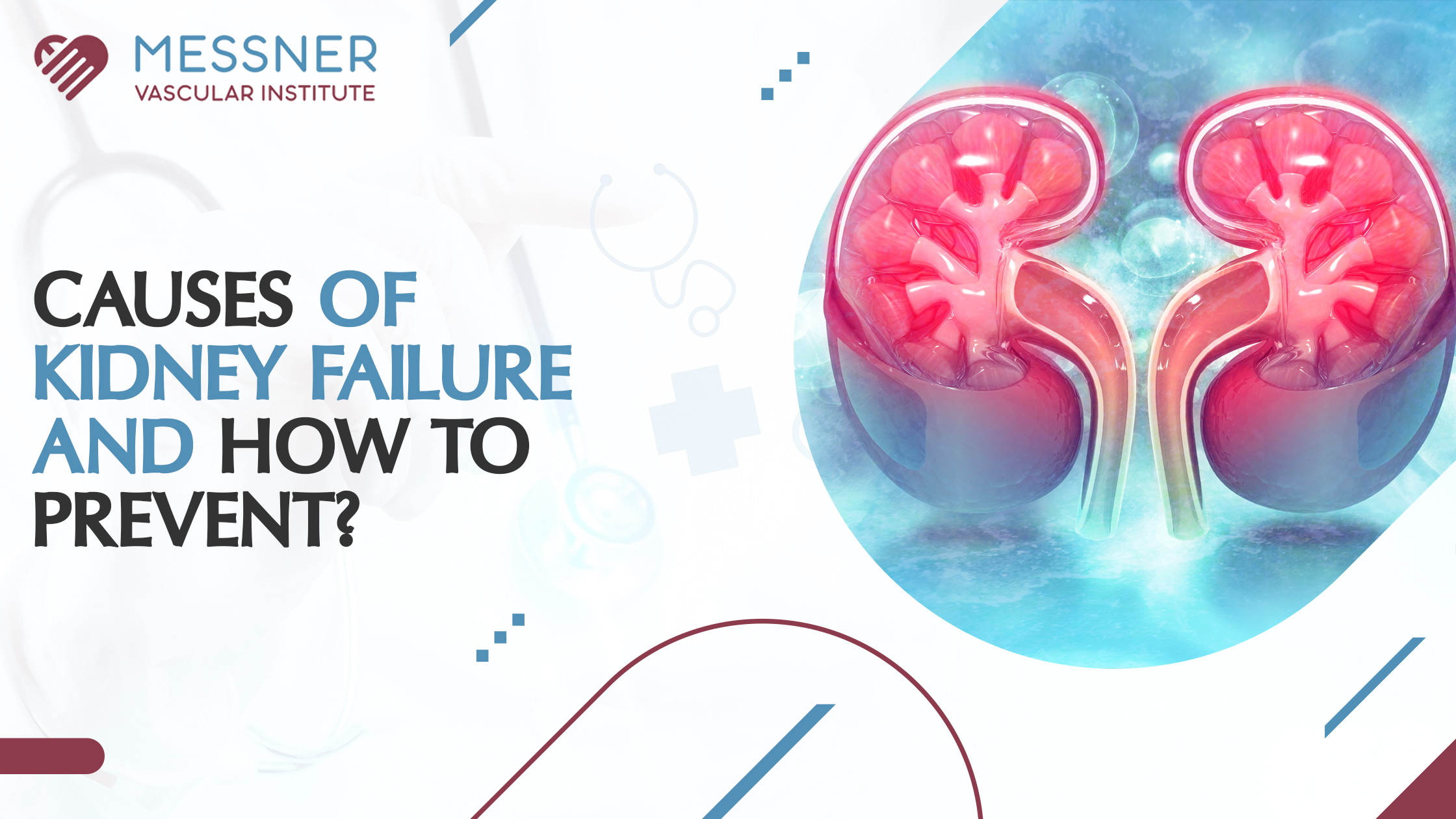Kidney failure, a grave health condition, can drastically alter one’s life. Therefore, It’s important to understand its causes for prevention and early intervention.
Alarmingly, chronic kidney disease (CKD) affects approximately 10% of the global population. Millions succumb to it annually due to lack of affordable treatment. This statistic underscores the importance of awareness and timely action. As no one deserves a life where simple joys are overshadowed by endless hospital visits, dialysis, and constant unease.
Unfortunately, this is a daily reality for many CKD patients. But, it doesn’t have to be this way. Knowledge is power. By understanding what causes kidney failure, we can take steps to prevent it and help others do the same.
Let’s explore what causes kidney failure, and how we can keep our kidneys healthy.
Overview of Kidney Function
The kidneys, two bean-shaped organs located on either side of the spine play an important part in maintaining our health. They are responsible for filtering waste products, excess water, and other impurities from the blood. These waste products are stored in the bladder and later removed during urination.
Moreover, kidneys regulate pH, salt, and potassium levels in the body. They also produce hormones that influence other bodily functions. For instance, one of their hormones stimulates red blood cell production. Others help regulate blood pressure and control calcium metabolism.
The health of our kidneys is closely tied to the state of our circulatory and vascular system. Good blood circulation ensures that our kidneys can perform their filtration function effectively, highlighting the importance of maintaining vascular health.
Primary Causes of Kidney Failure
These are the main reasons what causes a kidney failure:
- Diabetes and High Blood Pressure: These are the most common causes of kidney failure. They are responsible for up to two-thirds of the cases. Diabetes can damage the kidneys’ small blood vessels, impairing their function. High blood pressure can overwork the kidneys, leading to failure.
- Glomerulonephritis: This is an inflammation of the kidney’s filtering units. It can occur suddenly, for example, after a strep throat infection, or it can develop slowly over many years without any initial symptoms.
- Polycystic Kidney Disease: This is a genetic disorder causing numerous cysts to grow in the kidneys. These cysts can interfere with kidney function and eventually lead to kidney failure.
Peripheral Vascular Health and Kidney Function
The health of your peripheral vascular system directly impacts the kidney function. The peripheral vascular system consists of the veins and arteries that transport blood to and from the heart to the rest of the body, excluding the brain and heart.
To ensure top health of your kidney, Messner Vascular provides a specialized facility called the peripheral vascular laboratory where tests are conducted to evaluate the health of your blood vessels. These tests can help detect peripheral vascular diseases, which affect blood vessels outside the heart and brain.
Peripheral vascular diseases can lead to kidney issues because they can impair blood circulation which enable kidneys to perform their filtration function effectively. Therefore, maintaining good peripheral vascular health is essential for preventing kidney failure.
Symptoms and Early Warning Signs
Kidney failure often begins with general symptoms that can easily be mistaken for other conditions. Here are some of the early warning signs:
- Fatigue and Weakness: This can be due to the build-up of toxins in the body that the kidneys are no longer able to eliminate.
- Difficulty Concentrating: A decrease in kidney function can lead to a buildup of toxins and impurities in the blood, which can affect brain function.
- Poor Appetite and Weight Loss: This can be a result of a build-up of toxins affecting the digestive system.
- Trouble Sleeping: Toxins in the blood can make it difficult to sleep.
- Swollen Feet and Ankles: This can be due to kidneys not removing extra fluid, which can lead to sodium retention.
Prevention and Management
Preventing kidney failure involves a combination of lifestyle changes and medical interventions:
- Manage Underlying Conditions: If you have conditions like diabetes or high blood pressure, managing them effectively can prevent kidney damage.
- Healthy Lifestyle: Regular exercise, a balanced diet, and avoiding smoking and excessive alcohol can help maintain good kidney health.
- Regular Check-ups: Regular medical check-ups can help detect kidney issues early, allowing for timely treatment.
- Medical Interventions: If kidney damage occurs, medical interventions such as medication, dialysis, or a kidney transplant may be necessary.
By taking these steps, you can significantly reduce your risk of kidney failure.
In Conclusion
Kidney failure is a serious condition with various causes, including diabetes, high blood pressure, and peripheral vascular diseases. Early detection through understanding the symptoms and maintaining good vascular health is crucial.
Prevention strategies include managing underlying conditions, maintaining a healthy lifestyle, and regular check-ups.
For more in-depth and personalized advice you can contact Dr. Messner at Messner Vascular who is board certified in Cardiothoracic Surgery with a special emphasis in vascular and endovascular diseases.
He has been in practice for more than 20 years. Get in touch with him by visiting us at Messnervascular.com.
FAQs Section
What advanced tests does a peripheral vascular laboratory offer?
Peripheral vascular laboratories offer advanced tests such as angiography and Doppler ultrasound, which provide detailed images of blood vessels and blood flow, aiding in early disease detection.
Can blood circulation problems cause other health issues?
Yes, blood circulation problems can lead to several health issues, including heart disease and stroke, by limiting the supply of oxygen and nutrients to vital organs.




